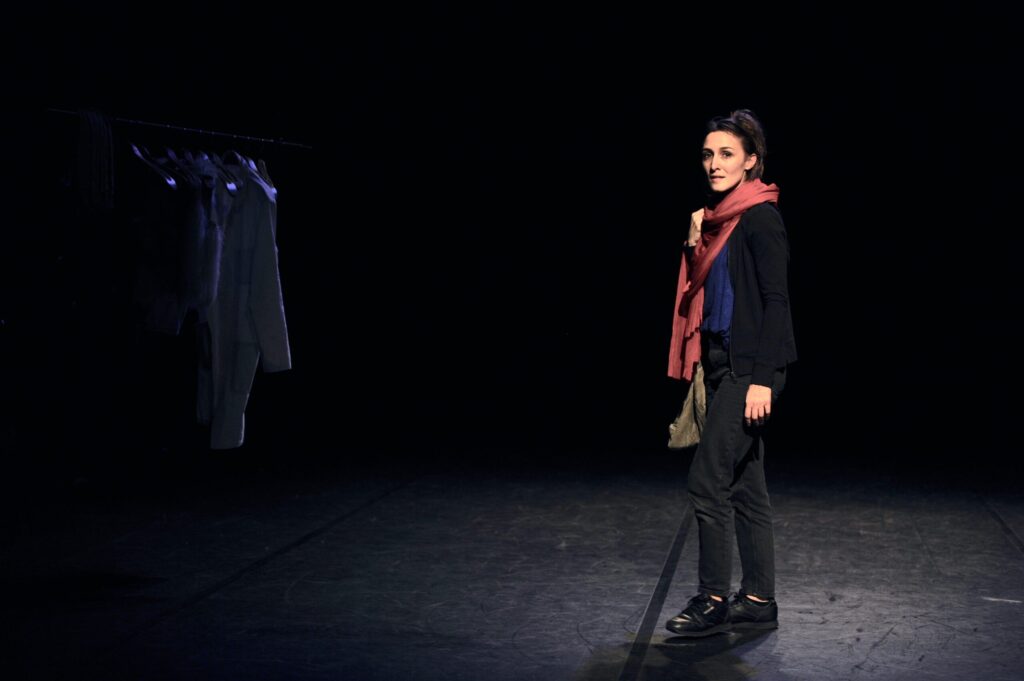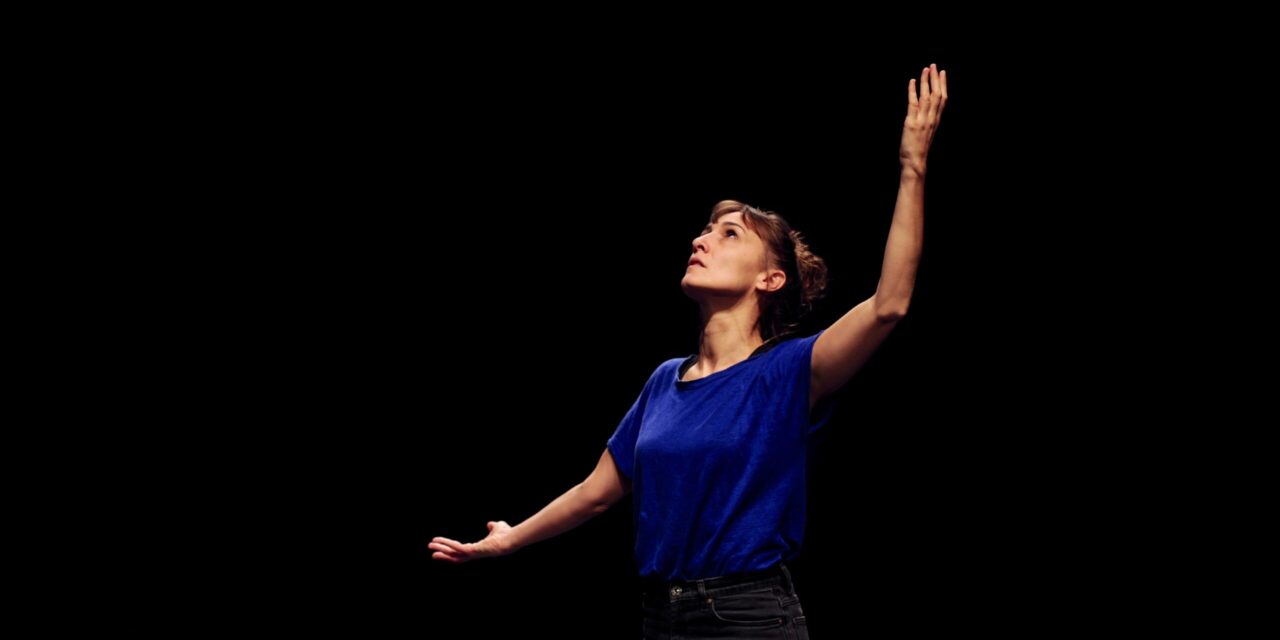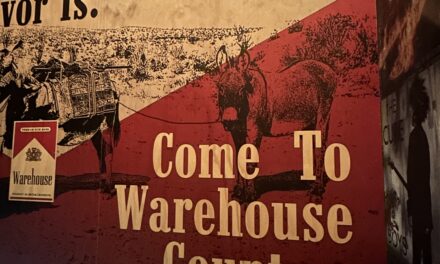Nil Bosca (photo: Marion Stalens)
The little river “Euphrate” found its source in a reservoir of talent, honesty and raw theatre
Review by Daniel Greenways
On Thursday evening, May 29, while horns on Whyte Ave heralded another Oilers win, a small French-speaking audience was treated to a masterful little play that did something older than the theatre itself: it turned human life into a river.
As early as the 6th century BC, this metaphor was already in use by Heraclitus, who told his followers that one cannot step into the same river twice, for one will not be the same person, and it will not be the same river. Even in those times, to compare a person with a river was more than just an act of poetic symbolism; it was to highlight the fluid, ephemeral, changing nature of our lives. A person exists only so long as they flow through time. So it is with a river. It is born, it thrives, absorbs the history along its banks, changes routes, slows to a trickle, and can even be lost, as was the case with the Rubicon.
The river Euphrates, which supposedly ran through the garden of Eden, is starting to shrink as well, dwindling each year in our modern, industrial world. On Thursday night, it ran through Edmonton, in the form of a young woman (who happens to be named after the Nile).
Nil Bosca’s semi-autobiographical one-woman play stars Euphrate (French for Euphrates), a high school student who cannot decide what direction she should take in her fast-flowing life. As she thumbs through a list of fields she could study (alphabetically), she tries to imagine her life if its river forked in each direction. Through these vignettes, we get to know Euphrate’s family, her heritage, her counsellor, and the hopes and dreams that propel her down the waterfall of adolescence.
Euphrate’s character, much like water itself, is only revealed in reflected light. In the course of the play’s hour and ten-minute runtime, she is compared to a tree, a fish, a camel among horses, a window, and the river after which she was named. She imagines being all sorts of professions, but is kicked about by the rapids of parental expectation. Perhaps her life is so fluid, in this moment, that if we defer to the same metaphor twice, it would no longer pertain to the same girl. The play is also a tug-of-war between Euphrate’s Turkish identity, which becomes linked to the first Turkish stage-actress Afife Jale, and the vicarious ambition of her parents, rooted in modern France.

This whirlpool of change and choice was brought to life in vivid detail by Bosca. Her brand of performance is one of physicality, levity, and free play. In costumes layered like a matryoshka, and dances that throw Euphrate’s emotions across the stage, Bosca masterfully spun the audience into this young girl’s world. What I really admired about the production was its trust in raw theatre. Every monologue was active, every line was delivered with intentionality, and the production’s design carried the mark of confident simplicity. In a black-box set with a coat rack and a desk, Bosca managed to cast the absurd, hilarious lifeworld of her adolescence into a veritable cyclone across the stage.
The theatre scene in Edmonton would do well to learn from Bosca’s example. Her show has passed successfully through France, Belgium, USA, and now Canada, hosted by the Alliance Française. The crowd was very small for her only Edmonton show, but she received a standing ovation and a curtain call. Euphrate will perform again in Calgary, then Vancouver. It is in French with English surtitles.
Euphrate
Written and performed by Nil Bosca
Production by ARTÉPO, co-produced with Anis Gras – Le Lieu de l’Autre
Fringe Theatre, Edmonton
May 29, 2025




